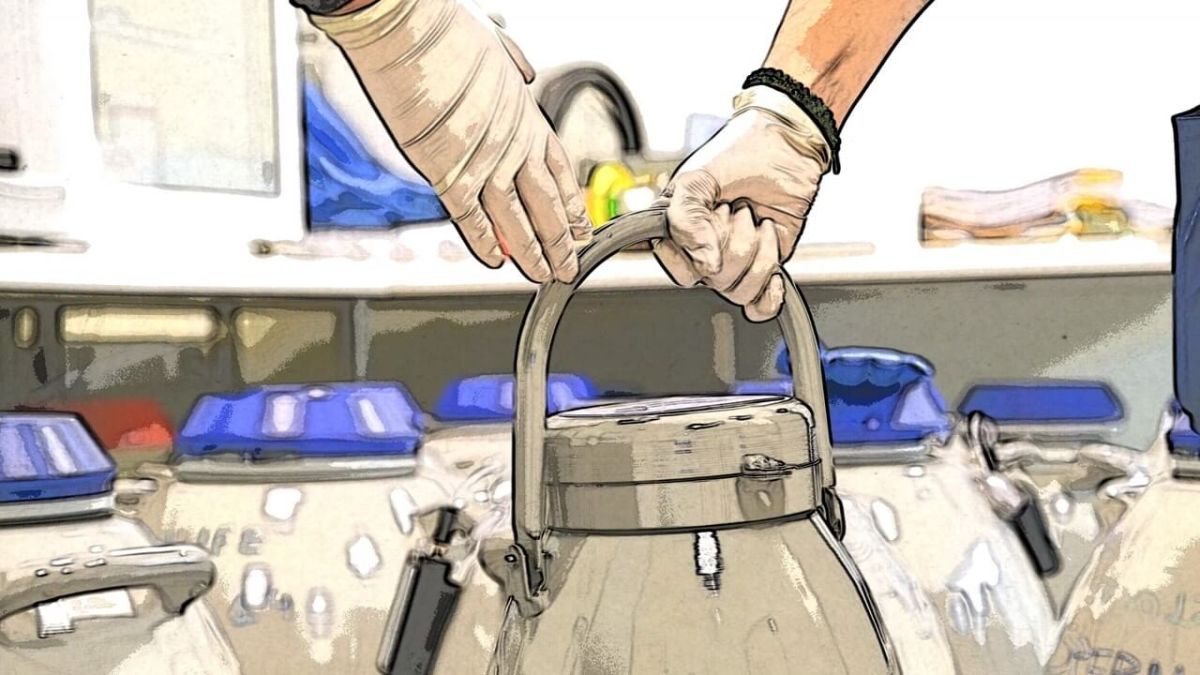
IVF NewsNews: UK survey reveals challenges of fertility treatment
Joanne Delange 31 October 2022
A Fertility Network UK survey of 1279 fertility patients has revealed the impact of treatment on mental health, finances, relationships and career. The survey was conducted by the charity which provides support to be affected by infertility between April - July 2022. Results were published on 31 October 2022 to mark the start of National Fertility Awareness Week. Forty percent of patients responding to the survey reported to have experienced suicidal feelings at some point, 63 percent had paid for their own treatment (at an average cost of £13,750), 36 percent felt their career was damaged as a result and 59 percent reported some detrimental impact on their relationship with their partner. '…[this] major new survey reveals the far-reaching trauma of infertility, painting a stark, distressing picture of what it is like to experience infertility and fertility treatment in the UK.' said Gwenda Burns, chief executive of Fertility Network UK. 'Fertility patients encounter a perfect storm: not being able to have the child you long for is emotionally devastating, but then many fertility patients face a series of other hurdles, including potentially paying financially crippling amounts of money for their necessary medical treatment, having their career damaged, not getting information from their GP, experiencing their relationships deteriorate, and being unable to access the mental support they need.' The survey further uncovered that 75 percent of patients felt that their GP didn't provide enough information about fertility problems and treatment, with 51 percent receiving counselling. However, the majority of patients that had counselling had to pay for it themselves, with 78 percent saying that they would have liked to have had counselling if it was free. Nearly half of the patients would have liked to have attended a support group, but did not have one nearby. According to the Human Fertilisation and Embryology Authority (HFEA), more than 50,000 UK women undergo IVF treatment annually. 'Going through fertility treatment can be one of the most challenging times of a person's life and it's clear from this survey that the emotional, physical and financial implications of fertility, continue to affect patients today.' Julia Chain, chair of the HFEA, said in response to the report. 'Providing fertility care is not just about achieving a pregnancy. A patient's mental health should be a priority too. We are particularly concerned to see that 40 percent of respondents reported suicidal feelings and around half felt depressed. This emphasises the importance of access to counselling which UK licensed clinics are legally required to offer and make available to any patient who wants that support.' The figures have changed little since the survey in 2016, with participants still reporting inadequate access to NHS-funded fertility treatment and mental-health services, as well as lack of workplace policy and support. Fertility Network UK's survey was conducted with Dr Nicky Payne, associate professor of psychology at Middlesex University, London and the full report published as 'The Impact of Fertility Challenges and Treatment'. Burns concluded: 'This is unacceptable. Infertility is a disease and is as deserving of medical help and support as any other clinical condition.' Sources and References
[ Full Article ] News: Exposure to WiFi reduces sperm motility and viability in the lab
Laxmee Ramkhelawon 31 October 2022
A smart phone carrying out a voice call over WiFi, has been shown to negatively affect sperm motility and viability in semen in the laboratory. Researchers at the University of Miami Miller School of Medicine, Florida, have shown that while semen in vitro was affected by exposure to a mobile phone carrying out a voice call over WiFi, it was not affected by exposure to the same voice call carried out using 4G or 5G. They hypothesised this could be due to increased heat emanating from a voice during a call carried out over WiFi, as well as radiofrequency electromagnetic radiation (RF-EMR) emitted by the phone. 'The data shows that sperm-exposure to WiFi reduces sperm motility and viability. I have no problem with this conclusion on the basis of the information presented in this abstract, but we need to be cautious about how this is interpreted in a real-world setting,' said Allan Pacey professor of andrology at the University of Sheffield and Progress Educational Trust trustee who was not involved in the research. He added: 'It is important to note that sperm in the male body before ejaculation do not swim. Therefore, it is a leap of faith to assume that the damaging effects of WiFi signals might affect unactivated sperm in men's bodies in the same way as the authors of this study have shown for ejaculated sperm in the laboratory.' The abstract of the study was presented at the American Society for Reproductive Medicine's 2022 scientific congress held 22-26 October 2022 and published in the journal Fertility and Sterility. Researchers had set out to investigate the impact of RF-EMR, which is emitted by smart phones accessing WiFi, 4G and 5G, on sperm motility and viability from ejaculated semen in the laboratory from fertile men between the ages of 25-35 years old. They used a current generation smartphone to carry out a six hour WhatsApp voice call via WiFi, 4G or 5G to generate RF-EMR for the experiment. The team found a statistically significant association between exposure to WiFi and a decrease in sperm viability, a 13 percent reduction, and sperm motility, a 12 percent reduction. This association was not observed in semen samples that were exposed to 4G or 5G RF-EMR. Noticing the phones became warmer when carrying out the voice call over WiFi than over 4G or 5G networks, researchers hypothesised the effect observed on sperm was due to heat emitted by the phone. To test this researchers also incubated ejaculated semen in a 37C incubator, and found this also affected motility of sperm. Authors also found the use of a phone case, or increasing the distance of the semen from the smartphone, reduced the effect of WiFi on sperm. As different phone models behaved differently, the researchers noted that continued research on the association between WiFi exposure and lower sperm motility was needed. Sources and References
[ Full Article ] Webinar: WEBINARS PREPARING EMBRYOLOGY CERTIFICATION
Marc Van den Bergh 18 October 2022
[ Full Article ] Webinar: CRYOGOVERNANCE® VI: BEST PRACTICES IN CRYOSTORAGE
International IVF Initiative 16 October 2022

18th Oct 2022, 3pm EST LIVE, 8pm UK, 9pm CET Moderators: [ Full Article ] Announcement: Hands on Training 2022
Dr. Sarabpreet Singh 03 October 2022
 The Fertilis Academy in association with Artemis Hospitals is organizing a Hands-on training on 'Gamete Handling/IVF/ICSI' and 'Vitrification of Embryos' from 4th to 13th November, 2022.
The venue for the training will be Artemis Hospital, Sector 52, Gurugram.
Interested candidates can visit the link https://www.thefertilisacademy.com/hands-on-training/ for details.
📍For any queries,
Call us: +91-9899009497
Whatsapp us - https://wa.link/facvm6
Explore more about us at www.thefertilisacademy.com
(Find the link in bio.)
**Certificate will be awarded at the end of the course.
The Fertilis Academy in association with Artemis Hospitals is organizing a Hands-on training on 'Gamete Handling/IVF/ICSI' and 'Vitrification of Embryos' from 4th to 13th November, 2022.
The venue for the training will be Artemis Hospital, Sector 52, Gurugram.
Interested candidates can visit the link https://www.thefertilisacademy.com/hands-on-training/ for details.
📍For any queries,
Call us: +91-9899009497
Whatsapp us - https://wa.link/facvm6
Explore more about us at www.thefertilisacademy.com
(Find the link in bio.)
**Certificate will be awarded at the end of the course.
[ Full Article ] Webinar: CRYOGOVERNANCE V - BEST PRACTICES IN CRYOTRANSPORTATION
International IVF Initiative 26 September 2022

11th Oct 2022, 3pm EST LIVE, 8pm UK, 9pm CET [ Full Article ] News: Protein that helps sperm fuse with egg identified
Dr George Janes 26 September 2022
A newly discovered protein which facilitates egg and sperm fusion provides new insights into human fertilisation. Over half of infertility cases cannot be explained, meaning that treatments based on current understanding may not be effective for every patient. Using an artificial fertilisation technique, researchers have revealed a novel protein controlling the attachment of sperm to eggs, shedding new light on the mechanisms of conception. Professor Harry Moore of the University of Sheffield and lead author of the study said: 'Infertility is unexplained in more than half of those who struggle to conceive naturally. What we know about fertility in humans has been severely limited by ethical concerns and the lack of eggs for research.' The study, published in Science Advances, describes how the team used microscopic beads, each coated with a specific protein fragment, to screen the role of many proteins in sperm-to-egg attachment. Using this method, they discovered that beads coated with a section of one protein, MAIA, named after the Greek goddess of motherhood, bound a high number of sperm. The scientists showed that MAIA acts together with a previously identified sperm-binding protein called JUNO to anchor sperm to the egg's surface. They introduced the genes for MAIA and JUNO into hamster egg cells and found that this enabled them to bind human sperm, something they ordinarily would not be able to do. PET trustee, Professor Allan Pacey of the University of Sheffield and co-author of the study said: 'This discovery of the MAIA protein is a major step forward in how we understand the process of human fertilisation. It would have been almost impossible to discover without the use of the artificial beads to replicate the surface of human eggs as we simply wouldn't have been able to get enough eggs to do the experiment. A classic case of thinking out of the box.' These findings elucidate how gamete fusion occurs and could explain the idea that, between humans, some people's sperm may not be compatible with others' eggs. The discovery of this mechanism and future work could help explain why some patients cannot easily conceive. Professor Moore commented: 'The ingenious artificial fertilisation technique which enabled us to identify the MAIA protein will not only allow scientists to better understand the mechanisms of human fertility but will pave the way for novel ways to treat infertility and revolutionise the design of future contraceptives.' Sources and References
[ Full Article ] News: Human cells mimicking early embryogenesis generated
Dr Emma Green 26 September 2022
A type of embryonic cell has been generated from human stem cells for the first time, providing a method to study post-implantation development. Published in Cell Stem Cell, researchers at KU Leuven, Belgium, have created extraembryonic mesoderm cells (EXMCs) from human induced pluripotent stem cells (iPSCs). The cells closely resemble those naturally formed in human embryos, providing a good model to study early development in vitro. 'We are very excited because now we can study processes that normally remain inaccessible during development,' said lead author Professor Vincent Pasque. 'The model has already enabled us to find out where extraembryonic mesoderm cells come from. In the longer term, our model will hopefully also shed more light on medical challenges such as fertility problems, miscarriages, and developmental disorders.' Ethical and technical limitations mean that early human embryo development is difficult to study. Human stem cell models provide an accessible way to study specific cells and their processes. Human iPSCs have the capacity to generate all cell types in the body. The extraembryonic mesoderm forms early in embryonic development just after implantation. EXMCs generate the first blood in the embryo, aid in attaching the embryo to the future placenta, and are involved in forming the primitive umbilical cord. 'In humans, this type of cell appears at an earlier developmental stage than in mouse embryos, and there might be other important differences between species. That makes our model especially important: research in mice may not give us answers that also apply to humans' said Professor Pasque. This new cell model is a step forward in understanding human cell development and may provide a way to study a variety of developmental disorders. Sources and References
[ Full Article ] News: Hyaluronic acid may boost chance of live birth
Melinda Van Kerckvoorde 26 September 2022
A large data analysis study has found that embryo exposure to hyaluronic acid prior to transfer could improve IVF success rates for patients using their own eggs. Hyaluronic acid is an adhesive compound that is secreted by the cells surrounding the egg and is naturally present in the female reproductive tract. Following in-vitro fertilisation, embryos are kept in a liquid medium before being transferred back to the womb. Many studies have investigated whether adding hyaluronic acid to the culture medium could be a simple and cheap way to improve IVF success. A data analysis published in Human Reproduction suggests that it may increase live birth rates for some patients. 'We found that when women use their own eggs, exposing to hyaluronic acid for ten minutes before placing it in the uterus increased the likelihood of a cycle resulting in a birth by 32 percent to 39 percent,' said Dr Devorah Heymann from Kaplan Hospital in Rehovot, Israel who led the study in partnership with Hebrew University, Jerusalem, Israel. The research team analysed data from 15 clinical trials to compare the effect of hyaluronic acid on pregnancy outcomes between patients who used their own eggs or donor eggs for IVF. A total of 4686 IVF patients were included in the study whose embryo culture medium contained high or low concentrations or no hyaluronic acid. Following statistical analysis, the researchers claim that culture media containing high concentrations of hyaluronic acid increase the number of live births and clinical pregnancies from 36 percent to 43 percent and 42 to 47 percent, respectively, when using the patient's own eggs. No beneficial effect on pregnancy outcomes was observed when using donor eggs. The team had previously carried out a Cochrane Review in 2020 which had also shown that hyaluronic acid treatment could help people who use their own eggs for IVF. Given the increased demand for donor eggs, hyaluronic acid treatment thus could help patients to conceive even when their own eggs are of poorer quality. Furthermore, this study could provide more evidence for the Human Fertilisation and Embryology Authority which currently lists hyaluronic acid addition during IVF as a treatment add-on with conflicting results. The researchers highlight that more data is needed to reveal the true effect of hyaluronic acid when using donated eggs and that further research is required to understand the underlying mechanism of hyaluronic acid. Sources and References
[ Full Article ] Announcement: IMT Matcher - IVF Witnessing System
EART 14 September 2022

𝗦𝗵𝗶𝘃𝗮𝗻𝗶 𝗦𝗰𝗶𝗲𝗻𝘁𝗶𝗳𝗶𝗰 𝗶𝗻𝘃𝗶𝘁𝗲𝘀 𝗬𝗢𝗨 𝘁𝗼 𝗷𝗼𝗶𝗻 𝘂𝘀 𝗟𝗜𝗩𝗘 𝗼𝗻 𝟭𝟴𝘁𝗵 𝗦𝗲𝗽𝘁𝗲𝗺𝗯𝗲𝗿 𝟮𝟬𝟮𝟮, 𝗦𝗨𝗡𝗗𝗔𝗬 𝗮𝘁 𝟭𝟭:𝟬𝟬𝗮𝗺 [ Full Article ] |